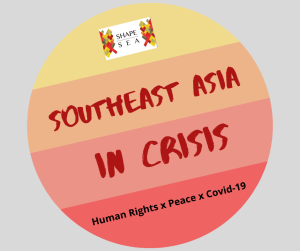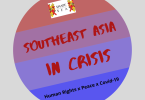Zainab NasirStudent, Asia Pacific MA Human Rights and DemocratisationGlobal Campus of Human Rights Asia PacificInstitute of Human Rights and Peace Studies, Mahidol University
 Human dignity is protected by the interrelation of human rights and corresponding duties. The structure of the society and the social actors facilitate participation in all spheres of the social order through inter-related rights and duties. Attribution of rights means social rights or the rights to support for the development of life i.e. food, clothing, shelter, rest, medical care and the necessary social services such as security of life, etc. Social rights include the rights to an adequate standard of living, affordable housing, food, education, an equitable health system, and social security based on respect, not sanctions. There is evidence that they improve the lives of individuals and communities (Hun, P.H.M., 2017). Likewise, all citizens have a duty to respect the human dignity of others and to fulfill their responsibilities towards each other and to the society at large, It’s also termed as social responsibility. This ethical framework implies that an entity, be it an organization or an individual, their primary duty is to live in solidarity, that is, a firm and persevering determination to commit oneself to the common good.This ethical framework can rightly be used in the context of the new spread of pandemic disease of coronavirus for it evolves both range of social rights, such as the right to health, right to food, right to education, freedom of movement, right to social gathering, and responsibilities of several social actors. Those social norms and responsibilities are not written anywhere in the constitution in contrast to the rights that are protected by written law of land but understood through social practice. In order to enjoy rights, one should understand the social connection between rights and duties and therefore must perform upon those duties which are not always defined. For example, to protect the right to health, one needs to realize that although one has the freedom of movement and social gathering, a right to education, the society owes them a responsibility to restrict themselves in a certain circumstance of collective good and therefore, adopt and accept alternative means to reach them.A general misconception that could be observed during the ongoing global health crises includes public complaints regarding national government performance to stop the spread of disease. We should realize that responsibilities not only lie on national and local governments, institutions, the media and organizations but it also lies upon individuals. For example, at an individual level, one should be mindful of the safety of oneself and others by taking safety measures such as to stay home, wash hands, sneezing and coughing below the elbow and to cover mouth and nose, be rightly informed and not to spread panic in their surroundings.Iris Marion Young finds social connection models as an alternative to the concept of responsibility. It proposes that all those who contributed by their actions to the structural processes with some unjust outcomes share a responsibility for the injustice. She suggests a responsibility that is forward-looking. This kind of responsibility does not emphasize the blame game but it rather asks for constructive contribution in the social structure (Responsibility for Justice, 2011). This doctrine of forward-looking responsibility could be useful to address the current health situation in the world in terms of how we can individually and collectively fulfill our responsibilities in order to ensure the wellbeing of the community at large.Considering the interdependency of rights and responsibilities and the major challenges posed to the efficient realization of human rights to all people in the new century, the Declaration of Human Duties and Responsibilities (DHDR) was written for implementation of Human Rights in 1998 on the 50th anniversary of Universal Declaration of Human Rights (UDHR). It formulated related duties and responsibilities for our interdependence. It’s incorporated in its preamble that the effective enjoyment and implementation of human rights and fundamental freedoms are linked to the assumption of the duties and responsibilities implicit in those rights. It defines “duty†and “responsibility†as moral or ethical obligations. It further explains in detail the complexity of the exercise of responsibilities. The bearers are the members of the global community that have collective as well as individual responsibilities.This interdependence of rights and duties is also foreseen in the Universal Declaration of Human Rights (UDHR) which incorporates in these words “respect the rights and freedoms of others”. It confirms it in its preamble that every human owes duties to the community and all are responsible to promote rights. therefore, It is important to see that all rights have a corresponding responsibility. Those, who claim their own rights, yet altogether forget or neglect to carry out their respective duties, are people who build with one hand and destroy with the other.References:
Human dignity is protected by the interrelation of human rights and corresponding duties. The structure of the society and the social actors facilitate participation in all spheres of the social order through inter-related rights and duties. Attribution of rights means social rights or the rights to support for the development of life i.e. food, clothing, shelter, rest, medical care and the necessary social services such as security of life, etc. Social rights include the rights to an adequate standard of living, affordable housing, food, education, an equitable health system, and social security based on respect, not sanctions. There is evidence that they improve the lives of individuals and communities (Hun, P.H.M., 2017). Likewise, all citizens have a duty to respect the human dignity of others and to fulfill their responsibilities towards each other and to the society at large, It’s also termed as social responsibility. This ethical framework implies that an entity, be it an organization or an individual, their primary duty is to live in solidarity, that is, a firm and persevering determination to commit oneself to the common good.This ethical framework can rightly be used in the context of the new spread of pandemic disease of coronavirus for it evolves both range of social rights, such as the right to health, right to food, right to education, freedom of movement, right to social gathering, and responsibilities of several social actors. Those social norms and responsibilities are not written anywhere in the constitution in contrast to the rights that are protected by written law of land but understood through social practice. In order to enjoy rights, one should understand the social connection between rights and duties and therefore must perform upon those duties which are not always defined. For example, to protect the right to health, one needs to realize that although one has the freedom of movement and social gathering, a right to education, the society owes them a responsibility to restrict themselves in a certain circumstance of collective good and therefore, adopt and accept alternative means to reach them.A general misconception that could be observed during the ongoing global health crises includes public complaints regarding national government performance to stop the spread of disease. We should realize that responsibilities not only lie on national and local governments, institutions, the media and organizations but it also lies upon individuals. For example, at an individual level, one should be mindful of the safety of oneself and others by taking safety measures such as to stay home, wash hands, sneezing and coughing below the elbow and to cover mouth and nose, be rightly informed and not to spread panic in their surroundings.Iris Marion Young finds social connection models as an alternative to the concept of responsibility. It proposes that all those who contributed by their actions to the structural processes with some unjust outcomes share a responsibility for the injustice. She suggests a responsibility that is forward-looking. This kind of responsibility does not emphasize the blame game but it rather asks for constructive contribution in the social structure (Responsibility for Justice, 2011). This doctrine of forward-looking responsibility could be useful to address the current health situation in the world in terms of how we can individually and collectively fulfill our responsibilities in order to ensure the wellbeing of the community at large.Considering the interdependency of rights and responsibilities and the major challenges posed to the efficient realization of human rights to all people in the new century, the Declaration of Human Duties and Responsibilities (DHDR) was written for implementation of Human Rights in 1998 on the 50th anniversary of Universal Declaration of Human Rights (UDHR). It formulated related duties and responsibilities for our interdependence. It’s incorporated in its preamble that the effective enjoyment and implementation of human rights and fundamental freedoms are linked to the assumption of the duties and responsibilities implicit in those rights. It defines “duty†and “responsibility†as moral or ethical obligations. It further explains in detail the complexity of the exercise of responsibilities. The bearers are the members of the global community that have collective as well as individual responsibilities.This interdependence of rights and duties is also foreseen in the Universal Declaration of Human Rights (UDHR) which incorporates in these words “respect the rights and freedoms of others”. It confirms it in its preamble that every human owes duties to the community and all are responsible to promote rights. therefore, It is important to see that all rights have a corresponding responsibility. Those, who claim their own rights, yet altogether forget or neglect to carry out their respective duties, are people who build with one hand and destroy with the other.References:
- Tétrault-Farber. G., 2020. China to Russia: End discriminatory coronavirus measures against Chinese. Reuters. 26 February. Available at: <https://www.reuters.com/article/us-china-health-moscow-letter/china-to-russia-end-discriminatory-coronavirus-measures-against-chinese-idUSKCN20K1HU> .
- Khan, M.S., Lakha, F., Tan, M.M.J., Singh, S.R., Quek, R.Y.C., Han, E., Tan, S.M., Haldane, V., Gea-Sánchez, M. and Legido-Quigley, H., 2019. More talk than action: gender and ethnic diversity in leading public health universities. The Lancet, 393(10171), pp.594-600.
- Young, I.M., 2010. Responsibility for justice. Oxford University Press.
- Harden, V.A., 1986. Collected Essays on Public Health and Epidemiology. Resources in the History of Medicine Series No. 1.
- Office of the High Commissioner for Human Rights, 2020. Universal Declaration of Human Rights at 70: 30 Articles on 30 Articles – Article 21. Available at <https://www.ohchr.org/EN/NewsEvents/Pages/DisplayNews.aspx?NewsID=23957&LangID=E> [Accessed l1 March 2020).





